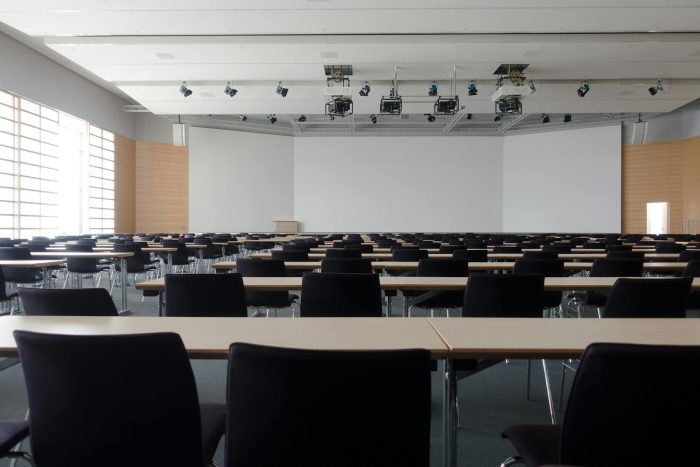
The modern educational system is characterized by a branched network of educational institutions and the availability of alternatives to classic public schools. It offers two types of institutions, namely, private and public. Each option has its specifics, as well as advantages and disadvantages.
In a broad sense, both types of institutions provide the same state program. However, public schools are financed by the state while private (commercial) educational institutions exist due to fees paid by students. Still, both options feature different attitudes towards pupils, which comes as the most significant difference. Commercial institutions pay more attention to pupils’ individual strengths and potential, that is why they are perceived better in society. In the article, we’re going to discuss why private education is better than public.
Education Quality in Private Schools
Although both structures stick to the same educational program, approaches to information presentation differ significantly. The same information is presented in different ways, which allows improving the quality of its perception. The main reasons why private schools are better include:
- Smaller class sizes. Classes in commercial schools usually consist of fewer pupils, which allows for paying more attention to every student.
- Individualized attention. Increased attention to pupils leads to the identification of their strengths, potential, and preferred disciplines. Teachers have enough time to test pupils, define their brain features, and provide hints for further study.
- Academic rigor. Programs are compiled by professional experienced teachers who know how to present educational material more effectively and in what order. Strict adherence to academic programs ensures coherent and scheduled material presentation and explanation, which results in improved remembering.
- Specialized programs. Private educational institutions often offer specialized programs that allow for gaining extra skills or knowledge. For example, additional programs for foreign language study are organized in private schools in Russia.
- The high qualifications of teachers. Private institutions pass regular certification to prove the level of provided services. Thus, they hire teachers who have the highest qualifications. Tutors are certified and have a wide background. Besides, students have the chance to study foreign languages with native speakers.
- Modern equipment and teaching aids. Commercial institutions usually have modern books, educational materials, and equipment for enhanced information covering and perception.
These features set private institutions in an advantageous position regarding state schools. This is why many students give preference to commercial options.
Additional Opportunities and Development
When answering the question “Are private schools better than public schools?”, it’s important to note that the first ones offer extra opportunities for student development. These include:
- specialized programs;
- extracurricular activities;
- after-class training;
- sports competitions.
These features allow commercial schools to focus on well-rounded development, including cultural and sports activities. Students are enrolled in different types of activity, which contributes to shaping their character and skills. As a result, pupils get a branched system of activities and can select the ones that interest them and help develop their skills.
For instance, different types of clubs of interest are arranged in private schools. These include music, sports, book clubs, etc. Such arrangements help teachers reveal students’ potential and guide them in the right direction to ensure individual development.
Safety and Discipline in Private vs Public Educational Institutions
If you wonder “Are private high schools better than public?”, it’s necessary to keep in mind another important factor, namely, discipline and safety. In this regard, private and public educational institutions have a significant gap. Public schools are characterized by lower safety since standard security measures are applied. This leads to worse discipline and problems with order among students.
Private schools apply new trends to create a safer and more disciplined environment. They have smaller class sizes, which guarantees proper control over pupils’ behavior and allows for preventing any problems with discipline. Stricter rules are applied to security in private institutions. Surveillance equipment, such as cameras, is installed to monitor behavior and minimize violence and rights infringement. Thus, commercial schools ensure an advanced approach in terms of student security and discipline.
Cost of Commercial School Education
When discussing how private schools are better than public, the latter has one significant advantage, namely, a low cost. Private school education is more expensive and requires regular fees for studying. However, despite the high cost, commercial schools offer superior services and ensure a high level of education targeted at a personalized approach and the reveal of individual potential and strength. The financial investment in private education often translates into better resources, a more personalized approach, and enhanced student conditions. Thus, the cost of education is fully justified by the level of knowledge and skills in the long run.
To summarize the answer to the question “Are private schools really better than public schools?”, note that commercial institutions are superior in certain aspects, though the decision depends on personal preferences. While public schools are cheaper, other aspects are lagging compared to commercial institutions. The latter has an advantage over public educational institutions in terms of security, personalized approach, reveal of individual educational potential, modern materials, class size, etc.
Still, choosing between commercial and state educational institutions depends on various factors such as the child’s needs, family financial situation, and personal preferences. Thus, when selecting between both types of educational institutions, evaluate all strengths and weaknesses before making the last choice.



